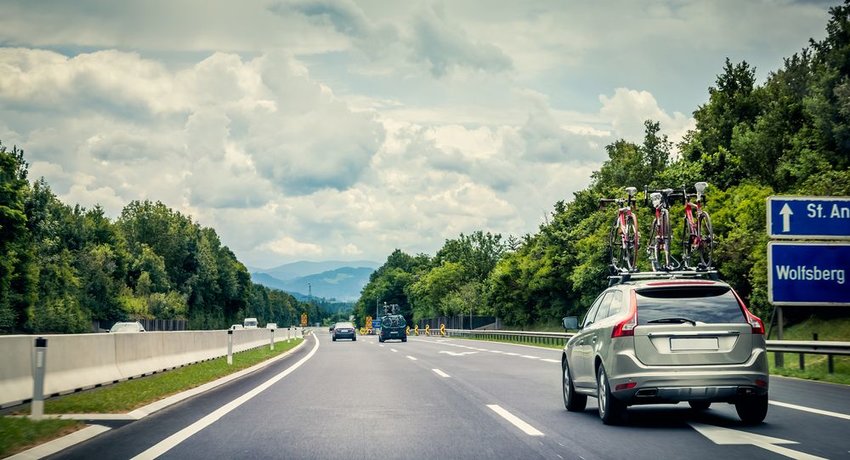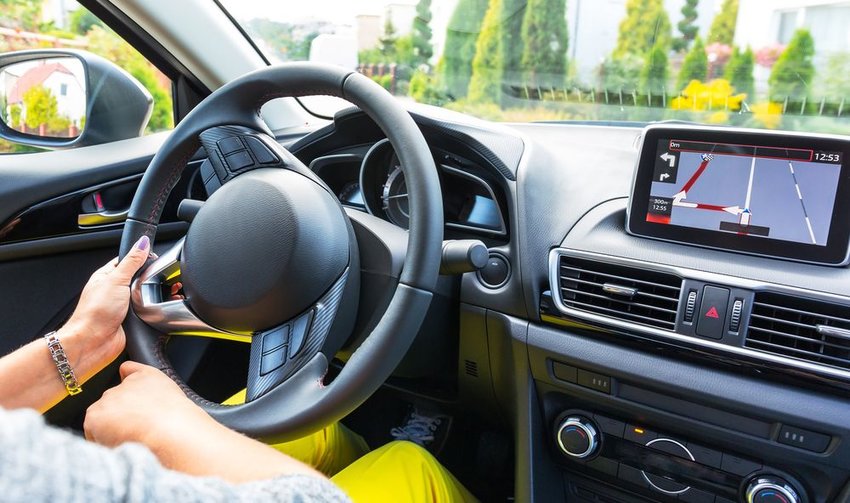Whether you find the idea of renting a car in a foreign country thrilling or terrifying, there's a lot more involved in the process than walking up to a counter and grabbing the keys. And whether you want to navigate the winding roads of the Transfăgărășan Road in Romania or the stunning vineyard-laden Via Chiantigiana between Florence and Sienna, you're going to need a little background before you can hit the open road.
Renting a car in a foreign country can get complicated and it involves a surprising amount of preparation. Here's everything you need to know before you get behind the wheel.
1. Figure Out Which Side of the Road You Need to Be On

Maybe it sounds obvious, but many travelers overlook this simple detail. Most countries around the world drive on the right side of the road, but if you're traveling to Australia, the U.K., British overseas territories, Japan, India, or some countries in Africa, you might want to double-check where that steering wheel is.
You can prepare yourself mentally for how it might feel to drive on the other side of the road and avoid becoming one of those viral dashcam videos of unlucky tourists who end up in car accidents because they were unfamiliar with the rules of the road.
2. Make Sure You're Allowed to Drive

If you're headed to an English-speaking country, chances are you'll be able to get by with just your driver's license, but you may want to consider getting an International Driving Permit in case you run across a car rental company that requires one. You can apply at your local American Automobile Association (AAA) office with a valid driver's license, two passport photos, and a completed IDP application.
Essentially, an IDP translates the information on your driver's license into 10 different languages, so if you get pulled over, the law enforcement officer will be able to see that you're legit.
Also, make sure to check the minimum and maximum car rental age in the country you're planning to visit. Ireland, for instance, doesn't rent cars to customers over 70 and most places require you to be at least 25.
3. Book in Advance

Book your rental ahead of time! It's easy to put it off because it might be the last thing on your mind after booking your flight and hotel. However, it's almost always going to cost you more money if you walk up to the counter when you arrive at your destination rather than reserving a car before you leave. Advance preparation also means you'll potentially avoid problems with exchange rates or language barriers.
Depending on where you book your trip, you can often add a rental car to a hotel and flight reservation and save big in the process.
4. Get Adequate Insurance Coverage

Whether you plan to navigate the busy streets of London or the narrow, curved mountain roads of India, insurance coverage for your foreign car rental is crucial. Figuring out insurance coverage for rental cars can be a bit of a sticky situation since your existing car insurance company isn't likely to cover your car rental in a foreign country.
So, what are your options? Well, the easiest route is to get basic insurance coverage with your rental car and make sure you know exactly what that covers including the deductible, how many passengers, and whether it includes liability coverage, etc. Other options might include insurance coverage through your travel credit card or an add-on to your travel insurance plan.
5. Use GPS Apps or Make Sure Your Rental Includes One

Gone are the days of frustrating MapQuest direction printouts littering the floor of your rental car with their confusing “make a U-turn” steps and unclear road maps. Luckily, technology can help you find your way around Prague, Rome, or Sydney. There are numerous GPS apps you can download to your smartphone and use offline to avoid thousands of dollars in overseas network charges. Some foreign car rentals even have a GPS built into the dashboard. All you need to worry about is entering addresses correctly.
Finally, it's never a bad idea to have a back-up plan. Consider taking along an old-fashioned paper road map just in case you find yourself in an area where coverage is spotty or your smartphone battery dies at an inopportune time. You always want to be over prepared.
